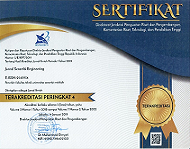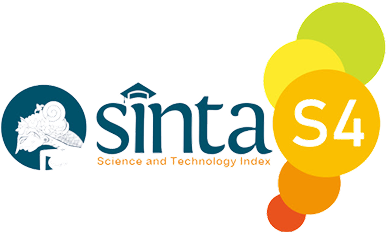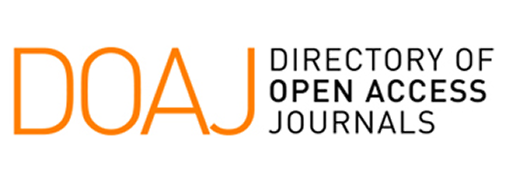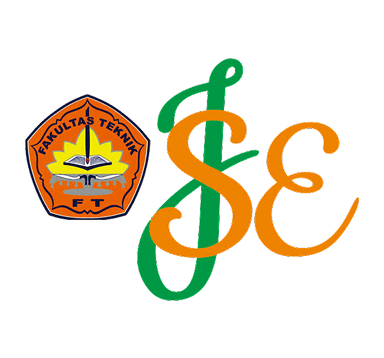Identifikasi Potensi Bahaya Pekerja Pada Proses Welding Proyek Support Frame Menggunakan Metode HIRARC di PT. XYZ
Keywords:
Identifikasi Bahaya, Penilaian Risiko, Pengendalian Risiko, HIRARC, Keselamatan dan Kesejatan Kerja, Sistem Manajemen K3Abstract
The steel and construction industry is currently growing very rapidly due to the increasing demand from various parties who want to see the progress of infrastructure in Indonesia. Design, manufacturing, and construction are the activities of PT XYZ, a government company. The majority of initiatives are focused on the production of steel-based goods. As personnel in the fabrication and construction industry often come into direct contact with heavy machinery and materials while performing their duties, accidents and occupational diseases are hazards that are difficult to prevent. Welding is one area of work that has a high rate of accidents and occupational diseases. To ensure the welding process runs safely, this research seeks to identify potential risks and hazards that may arise and carry out risk control in each work activity. Qualitative descriptive techniques combined with risk analysis using the HIRARC method is the methodology used in this research. Based on the results of the study, overall there are fourteen possible risks, including two high categories, one medium category, and eleven extreme categories. By increasing employee awareness of occupational safety and health (OHS), PT XYZ can increase productivity without sacrificing employee welfare.
References
[1] N. Jatniko and E. D. Jannati, “Proses Fabrikasi Rafter-Box Pada PT Wika Kontruksi,” Semin. Teknol. Majalengka, vol. 8, pp. 358–362, 2024.
[2] M. Ardila and Susilawati, “Studi Literatur : Pengaruh Pentingnya Penerapan Keselamatan Dan Kesehatan Kerja (K3) Pada Pekerja Di Bidang Kontruksi,” Gudang J. Multidisiplin Ilmu, vol. 2, no. 7, pp. 88–93, 2024.
[3] A. F. Rosyidiin and H. Murnawan, “Analisis Dan Evaluasi Intensitas Kebisingan Menggunakan Software Golden Surfer 23 Pada Perusahaan Fabrikasi Baja,” Heuristic, pp. 107–118, 2023, doi: 10.30996/heuristic.v20i1.8507.
[4] Arif Rochman Fachrudin, Fina Andika Frida Astuti, Mira Esculenta Martawati, and Ahmad Hanif, “Pelatihan Pengelasan Smaw Bagi Karang Taruna Kelurahan Temas Kecamatan Batu Kota Batu,” J. Abdimas Bina Bangsa, vol. 2, no. 1, pp. 14–19, 2021, doi: 10.46306/jabb.v2i1.56.
[5] Arina ’arofatuz Zakiyah, Denny Ardyanto, Mohammad Zainal Fatah, and Meirina Ernawati, “Identifikasi Bahaya Proses Blasting dan Painting di Perusahaan Fabrikasi Menggunakan Job Hazard Analysis (JHA),” INSOLOGI J. Sains dan Teknol., vol. 3, no. 2, pp. 186–198, 2024.
[6] Azwinur, A. Saputra Ismy, R. Nanda, and Ferdiyansyah, “Pengaruh arus pengelasan SMAW terhadap kekuatan sambungan las double lap joint pada material AISI 1050,” J. Weld. Technol., vol. 2, no. 1, pp. 1–7, 2020.
[7] Reymond Reflon F Gultom and M. Sabri, “Analisa Sifat Mekanik Dan Struktur Mikro Terhadap Pengelasan Baja Aisi 1045 Dengan Metode Smaw Dan Gtaw Pada Arus 100 Ampere,” Dinamis, vol. 9, no. 2, p. 7, 2021, doi: 10.32734/dinamis.v9i2.8445.
[8] W. J. Pamungkas and R. Fitriani, “Analisis potensi kecelakaan kerja di pabrik peralatan pertanian dengan hazard identification risk assesment and risk control (HIRARC),” J. Ind. Serv., vol. 8, no. 1, p. 7, 2022, doi: 10.36055/jiss.v8i1.14132.
[9] H. Hernilawati, S. Sutriswanto, and D. Rusvitawati, “Pengaruh Keselamatan Dan Kesehatan Kerja, Kompensasi, Dan Motivasi Kerja Terhadap Kinerja Karyawan Cv Berkah Anugerah Abadi Kabupaten Banjar Provinsi Kalimantan Selatan,” J. Ris. Akunt. Politala, vol. 4, no. 1, pp. 22–33, 2021, doi: 10.34128/jra.v4i1.67.
[10] C. D. Yogama, Z. Djunaidi, and F. F. Rahmawati, “Implementasi Program Pelaporan Unsafe Action & Unsafe Condition Di PT XYZ,” PREPOTIF J. Kesehat. Masy., vol. 6, no. 1, pp. 231–243, 2022, doi: 10.31004/prepotif.v6i1.2933.
[11] N. M. Dewantari, A. Umyati, and F. Falah, “Hazard identification risk assessment and risk control (HIRARC) pada pembangunan gedung business center,” J. Ind. Serv., vol. 8, no. 1, p. 1, 2022, doi: 10.36055/jiss.v8i1.14405.
[12] S. N. Janah, U. C. S, and S. Nurcahyani, “Pengaturan Keselamatan Dan Kesehatan Kerja (K3) Dihubunkan Dengan Pasal 87 Undang-Undang Republik Indonesia Nomor 13 Tahun 2003,” J. Huk. Huk. Islam, vol. 11, no. 2, pp. 88–97, 2024, doi: 10.32832/yustisi.v11i2.16655.
[13] S. Tarigan, “Penerapan sistem manajemen keselamatan dan kesehatan kerja (SMK3) pada industri pengolahan minyak kelapa sawit,” J. Prima Med. Sains, vol. 3, no. 1, pp. 1–5, 2021, doi: 10.34012/jpms.v3i1.1469.
[14] J. Shadiq, T. Sukwika, and I. Basriman, “Strategi Penerapan Keselamatan Kesehatan Kerja Pada Cabang Perusahaan Pergudangan: Menggunakan Metode Analisis Swot Dan Ahp,” Jambura J. Heal. Sci. Res., vol. 5, no. 3, pp. 899–909, 2023, doi: 10.35971/jjhsr.v5i3.20176.
[15] A. Ridwan and E. Prihastono, “Pengaruh Keselamatan dan Kesehatan Kerja (K3) Terhadap Kenyamanan Kerja Karyawan dengan Metode Hazard Identification Risk Assessment and Risk Control (HIRARC) (Studi kasus di PT. Dupantex Pekalongan),” SITEKIN J. Sains, Teknol. dan Ind., vol. 20, no. 1, pp. 40–53, 2022, doi: 10.24014/sitekin.v20i1.18317.
[16] S. Sari and N. Nouryend, “Identifikasi potensi bahaya dan pengendaliannya dengan hazard identification risk assessment and risk control,” J. Ind. Serv., vol. 7, no. 2, p. 217, 2022, doi: 10.36055/jiss.v7i2.12265.
[17] M. Isabella, Y. A. Presilia, and A. R. Malik, “Risk Analysis of Occupational Accident in Warehousing with Hazard Identification , Risk Assessment , and Risk Control Methods at PT XYZ,” vol. 21, no. 2, pp. 392–400, 2024, doi: 10.24014/sitekin.v21i2.31106.
Downloads
Published
Issue
Section
License
Copyright (c) 2024 Ryan Setyo Putro Robawa, Joumil Aidil SZS (Author)

This work is licensed under a Creative Commons Attribution 4.0 International License.












